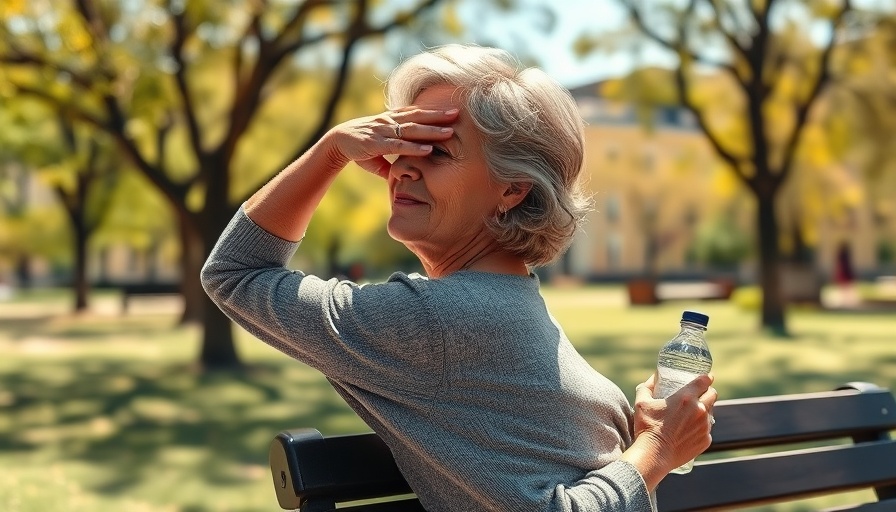
Understanding the Heat: Why Aging Bodies Struggle
As the summer sun blazes, many older adults find themselves more vulnerable to extreme heat than their younger counterparts. This isn't merely a matter of discomfort; it's a biological reality. As we age, various physiological changes occur that diminish our ability to regulate body temperature, making life in sweltering conditions increasingly challenging.
The Science Behind Temperature Regulation
As one ages, the body’s thermoregulatory system becomes less efficient. The hypothalamus, which plays a crucial role in monitoring and adjusting body temperature, might not respond as quickly or effectively. For example, older adults have fewer sweat glands, which means they sweat less and, consequently, lose less heat through perspiration. This change can pose significant risks, as overheating can lead to heat exhaustion or even heat stroke, presenting a serious health risk.
Impact of Chronic Health Conditions
Many older adults also deal with chronic health conditions, such as heart disease and diabetes, which can further impair their body's response to heat. For instance, individuals with heart conditions may experience increased strain during hot weather, making it critical for them to take extra precautions. Moreover, the medications used to manage these conditions can create additional challenges; some drugs have side effects that affect the body's natural cooling mechanisms. Understanding these factors is essential for anyone caring for aging parents or relatives.
Practical Strategies to Beat the Heat
So, what can older adults do to stay safe and comfortable during sweltering days? Here are several practical tips:
- Stay Hydrated: Drinking plenty of fluids is crucial. Aim for water and avoid caffeine and alcohol, which can dehydrate.
- Dress Wisely: Light-colored, loose-fitting clothing can help keep the body cool. Natural fabrics like cotton are often better than synthetic materials.
- Seek Shelter: Whenever possible, stay indoors during peak sun hours. Use fans or air conditioning to stay cool.
- Schedule Regular Breaks: For those who need to be outside, taking frequent breaks in a shaded or air-conditioned area can mitigate the risk of heat-related illnesses.
The Importance of Community Support
Social connections play a vital role in helping older adults cope with heat challenges. Family members, friends, and community organizations can check in on seniors during extreme temperatures, ensuring they have what they need to stay cool. Local services and programs often have resources dedicated to helping vulnerable populations during heat waves, which can include bringing fans, checking on health conditions, or simply providing companionship.
Future Considerations: Climate Change’s Impact
Looking ahead, we cannot ignore the broader context of climate change, which is expected to increase the frequency and intensity of heatwaves. Research suggests that the aging population will face higher risks in such scenarios. This underscores the urgent need for advocacy and policy changes to enhance community infrastructure designed to support vulnerable populations during extreme heat events.
Your Action Plan: Stay Informed and Prepared
Being aware of heat risks is the first step toward prevention. Engage in discussions with healthcare providers about medications and their effects on heat tolerance, or ask about any recommended lifestyle modifications. It is equally vital to educate friends and family about the unique needs of older adults during the summer months.
In conclusion, as we embrace the joys of warm weather, let’s also be vigilant in our care for older loved ones. With some simple strategies and community support, we can help them enjoy the summer while safeguarding their health.
 Add Row
Add Row  Add
Add 




 Add Row
Add Row  Add
Add 

Write A Comment